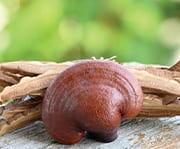Life Extension Magazine.
A meta-analysis found an association between vitamin D deficiency and a greater risk of multiple sclerosis (MS).*
Researchers selected 14 case-control studies that compared the risk of MS between adults with deficient and non-deficient vitamin D levels.
Deficiency was defined in most studies as 25-hydroxyvitamin D levels under 20 ng/mL.
Pooled data from the studies showed those who were deficient in vitamin D had a risk of MS that was 54% greater than in those who had sufficient levels.
Editor’s Note: "It is justifiable to conclude that maintaining sufficient vitamin D levels may be an important modifiable factor in reducing the risk of MS," the authors stated.
* Mult Scler Relat Disord. 2024 Aug 8:90:105804.
Citicoline’s Neuro-Protective Effects
A recent review described citicoline’s mechanisms and clinical relevance in the treatment of neuroinflammatory disorders.*
Citicoline is produced naturally in the body in small amounts. It is used in the synthesis of phosphatidylcholine, a critical constituent of cell membranes, needed for neuronal function. Citicoline also helps inhibit proinflammatory molecules.
Researchers have evaluated citicoline in people with age-related memory impairment, head trauma, acute ischemic stroke, and glaucoma.
The authors of the review note that although the results are mixed, many studies have found that citicoline could improve neurological function, disability reduction, expedited recovery, and cognitive-decline prevention.
Editor’s Note: “Citicoline stands as a promising agent, wielding both neuroprotective and anti-inflammatory potential across a spectrum of neurological conditions,” the authors said.
* FASEB J. 2024 Sep 15;38(17):e70030.
Taurine Benefits the Heart
A systematic review and meta-analysis revealed the pooled heart-health benefits of the amino acid taurine.1
The meta-analysis included 808 participants in 20 randomized, controlled trials that compared the effects of taurine to a placebo in people with coronary heart disease, history of coronary artery bypass, heart valve defects, congestive heart failure, cardiomyopathy, prehypertension, portal hypertension, or diabetes, or in generally healthy men.
Trial outcomes examined in the meta-analysis included heart rate, blood pressure, and left ventricular ejection fraction. Those who received taurine had the following significant improvements: 3.6 bpm reduction in resting heart rate, 4 mmHg reduction in systolic blood pressure, 1.4 mmHg reduction in diastolic blood pressure, and 5% increase in left ventricular ejection fraction.
In taurine-supplemented individuals there was also a significant improvement in New York Heart Association Functional Classification Scores, which is an assessment of heart failure status based on the severity of symptoms and limitations on physical activity.2
Editor’s Note: “Taurine showed noteworthy effects in preventing hypertension and enhancing cardiac function. Individuals prone to cardiovascular disease may find it advantageous to include taurine in their daily regimen,” the authors concluded.
- Nutr J. 2024 Aug 15;23(1):93.
- Available at: https://www.heart.org/en/health-topics/heart-failure/what-is-heart-failure/classes-of-heart-failure. Accessed December 5, 2024.
* FASEB J. 2024 Sep 15;38(17):e70030.
Reishi Mushroom Extract Enhances Immune Function
Reishi mushroom (Ganoderma lucidum) extract improved immune responses and reduced inflammation in older women, according to a study published in The British Journal of Nutrition.*
For this double-blind clinical trial, 39 women aged between 60–80 years took either 2,000 mg of reishi extract or a placebo daily for eight weeks.
At the end of the study, participants had a class of immune cells called T-lymphocytes evaluated for functionality. Those who received the reishi extract had T-lymphocytes that produced more positive response to an inflammatory stimulus than the group that received the placebo.
These results indicate that supplementation with the reishi extract contributes to enhanced immune response and an anti-inflammatory response.
Editor’s Note: “Ganoderma lucidum (a mushroom used in traditional Chinese medicine) compounds may attenuate aging-related physiological changes and restore normal immunity,” the authors stated.
* Br J Nutr. 2024 May 27:1-11.




